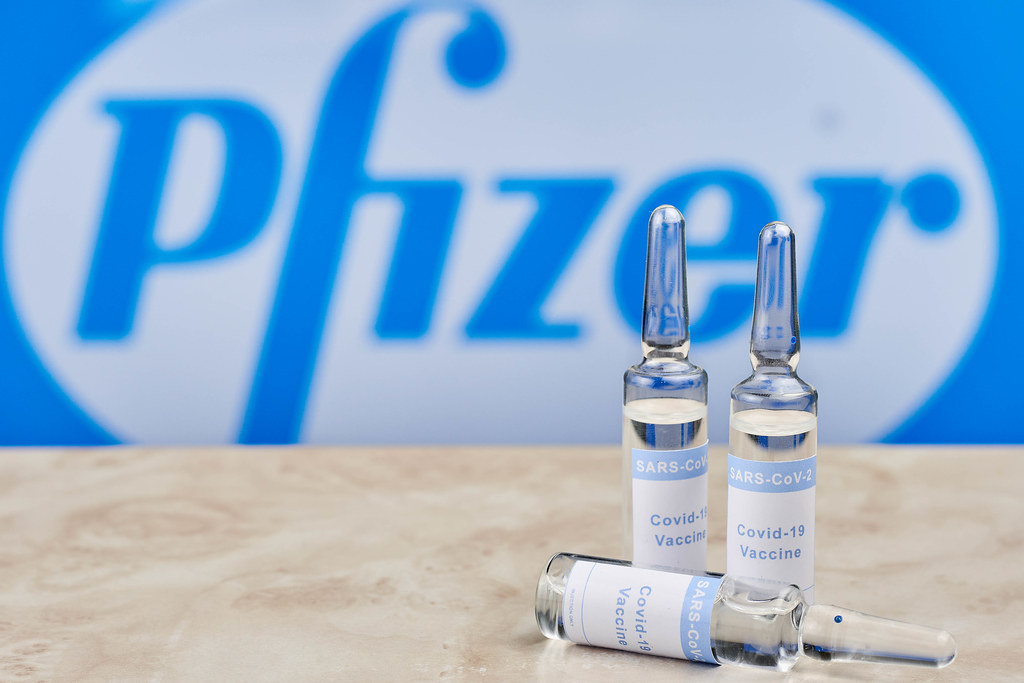
Published June 27, 2022
Back in November 2021, the White House paid drugmaker Pfizer nearly $5.3 billion for 10 million treatment courses of its experimental Covid-19 treatment, Paxlovid, an antiviral combination of nirmatrelvir and ritonavir.
Ritonavir was developed in 1989 and nirmatrelvir was developed in 2020. In other words, Paxlovid wasn’t developed from scratch to treat Covid-19; the compounds already existed.
In December 2021, Pfizer claimed initial study findings showed that Paxlovid cut the risk of hospitalization and death by nearly 90 percent in people with mild to moderate coronavirus infections. Without context this statement is grossly misleading. Just about everyone who gets the existing Covid-19 mutation will have mild or moderate disease, yet the drugmaker limited its study to people who were unvaccinated and faced the greatest risk from the virus due to age or health problems, such as obesity. An updated, more recent analysis from 1,153 patients (out of a possible 2,246 patients) showed a lackluster, non-significant 51 percent relative risk reduction. A sub-group analysis of 721 vaccinated adults with at least one risk factor for progression to severe Covid-19 showed a non-significant relative risk reduction in hospitalization or death (treatment arm: 3/361; placebo: 7/360).
According to Pfizer’s official June 14 press release, results from the Phase 2/3 of the amended Paxlovid EPIC-SR (Evaluation of Protease Inhibition for COVID-19 in Standard-Risk Patients) study showed, with my emphasis:
- The novel primary endpoint of self-reported, sustained alleviation of all symptoms for four consecutive days was not met.
- Pfizer will cease enrollment into the EPIC-SR trial due to low rate of hospitalization or death in the standard-risk population.
Tucked within Pfizer’s press release was the following financial nugget for investors: “The results from these additional analyses are not expected to impact Pfizer’s full-year 2022 revenue guidance.” The reason for that is: Pfizer already has $5.3 billion in hand from taxpayers, and has locked in “blockbuster status” (defined as one billion dollars in sales of a single drug).
In addition to the $5.3 billion already committed, in January the U.S. announced a confidential additional “commitment” to order an additional 10 million doses (at the price of 5.3 billion dollars more, for a total of $10.6 billion), giving Pfizer highly sought-after “super blockbuster status” (defined as 10 billion dollars in sales of a single drug). The administration remained “firmly committed to proceeding with the [additional] purchase,” according to an April 2022 Bloomberg report.
According to Bloomberg, the White House initially sought $22.5 billion in new pandemic funding. Democrats were prepared to include just over $15 billion in a broad government-spending bill earlier this year, but it was removed amid disputes with Republicans about whether it should be offset by spending cuts elsewhere in the government.
The $10 billion Senate bill included a requirement that at least half the money must be spent on therapeutics, but why did Biden gamble every dollar on one single drug from one single drugmaker? Why was Pfizer chosen to satisfy the therapeutics clause by itself?
As we have seen, FDA Emergency Use Authorizations (EUAs) don’t always work out as they should, but in this case, it was because of some manipulative action by Pfizer and a risky bet by the Biden White House.
That’s because with no public mention, Pfizer had secretly lowered its own bar following its EUA after the White House had committed to purchasing $5.3 billion dollars of product. Pfizer stated:
Following the Emergency Use Authorization of Paxlovid for individuals at high risk of progression to severe COVID-19, the protocol was amended to exclude high-risk individuals and allow enrollment of patients without risk factors for progression to severe COVID-19 who were either unvaccinated, or whose last COVID-19 vaccination occurred more than 12 months from enrollment. (emphasis added)
This way, Pfizer was able to administer its drug to a less severely ill and healthier population in hopes of having a superior efficacy signal and a decreased safety signal, but it still failed to show an adequate clinical effect on any of its prospective protocol-established endpoints.
In order to amend the protocol following FDA submission, Pfizer would have had to communicate with the FDA formally and in writing. A former Pfizer non-scientist executive, Patrizia Cavazzoni, now the head of the FDA’s Center for Drug Evaluation and Research, would have had to approve the change. Interestingly, Pfizer’s protocol amendment was kept under such tight wraps that it was not public knowledge until the Pfizer June 2022 press release. About a week prior, Yale University’s YaleMedicinehad even published a lengthy article on the benefits of Paxlovid, quoting the outdated original protocol endpoints. On June 7, Pfizer CEO Albert Bourla had announced plans to spend over $100 million to increase Paxlovid production and committed to hiring hundreds of new employees to maintain appearances with the White House and Pfizer investors.
Paxlovid is not the first example of “secret” and scientifically questionable decisions made outside of standard channels at the FDA under Patrizia Cavazzoni’s watch. About a year ago, secret meetings surrounded Biogen’s multi-billion-dollar monoclonal-antibody drug aducanumab (Aduhelm) for Alzheimer’s disease, which had failed to meet both safety and efficacy standards in every study it had attempted. Following contentious and potentially illegal and unethical back-channel meeting with Biogen executives, however, Biogen’s drug was approved by Cavazzoni against advice from FDA advisory-committee members and FDA employees. Cavazzoni affirmed her decision by writing a comically inadequate 1.5 page justification, which mostly quoted others’ opinions and did nothing to address their debatable hypotheses. Nearly every medical commentator scolded Cavazzoni’s approval of aducanumab, calling it things like “false hope,” “bad medicine,” “disgraceful,” “dangerous” “a disaster” or “a new low.” The circumstances surrounding Pfizer’s Paxlovid clinical outcomes are similarly awful.
But unlike Biogen, I couldn’t even find any online record of a meeting by Cavazzoni justifying the protocol amendment for Paxlovid, let alone an adequate one. Pfizer would have had to provide detailed reasoning in its protocol amendment and the FDA kept those requests and changes a secret. It’s just another example of the FDA’s total lack of transparency.
I opined in an op-ed a year ago that Cavazzoni would continue to make questionable decisions due to her close ties and extended history of employment in Big Pharma. Most of Cavazzoni’s career shows her working as a non-scientist Big Pharma executive. She also has a conspicuous lack of basic scientific or research experience for holding such a critical public health position. Unfortunately, I was correct, but it’s the taxpayers who will bear the costs of the failed Paxlovid gamble.
Why did the White House cut a blank check of taxpayer dollars before obtaining conclusive findings?
It’s not as if Pfizer is hurting for money or that Americans don’t already have multiple inexpensive, generic alternatives with voluminous peer-reviewed evidence behind them, covering decades and hundreds of thousands of patients. Still, the Biden White House ignored the historic wisdom of the Proverbs of Ahiqar, choosing to “throw away two in the hand (i.e., hydroxychloroquine and ivermectin) for one in the bush (Paxlovid).”
We have known for some time that the dominant mutated variants of Delta and Omicron (which comprise >99 percent of current cases, per the CDC) have mostly produced mild infections. Deaths and hospitalizations from Covid are down, because most people only get minimal to moderate cold-like symptoms these days. Even Johns Hopkins shows all-time record lows in Covid-19-related hospital ICU admissions.
Pfizer may have exaggerated its experimental product and been deceptive about changing its protocol without informing the public. By trusting Pfizer and making a considerable gamble with taxpayer funds, the White House flushed $5.3 billion taxpayer dollars largely down the drain. The White House is now on the hook for an additional $5.3 billion—for a total of $10.6 billion—for an ineffective Covid-19 treatment that Pfizer had already developed, when they could have spent almost nothing and promoted the established safety and efficacy of hydroxychloroquine and ivermectin with a superior outcome. More practically, since Delta and Omicron are mild, we could have just let Covid-19 mutations run their course and treat infections symptomatically with available generic pharmacology so that individuals can obtain natural immunity.
The Biden administration opted instead for this preposterous and outrageous waste of taxpayer money. Will the president, or anyone else, be held responsible?
Dr. David Gortler is a pharmacologist, pharmacist, and FDA and health care policy oversight fellow and FDA reform advocate at the Ethics and Public Policy Center in Washington, D.C. He was a professor of pharmacology and biotechnology at the Yale University School of Medicine, where he also served as a faculty appointee to the Yale University Bioethics Center. While at Yale, he was recruited by the FDA and became a medical officer who was later appointed as senior advisor to the FDA commissioner for drug safety, FDA science policy, and FDA regulatory affairs. He is an exiled columnist from Forbes, where he used to write on drug safety, healthcare politics, and FDA policy.
Photo: Flickr/Marco Verch Professional Photographer | CC BY 2.0












